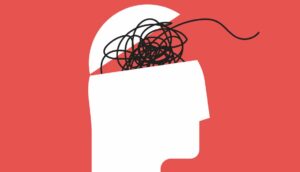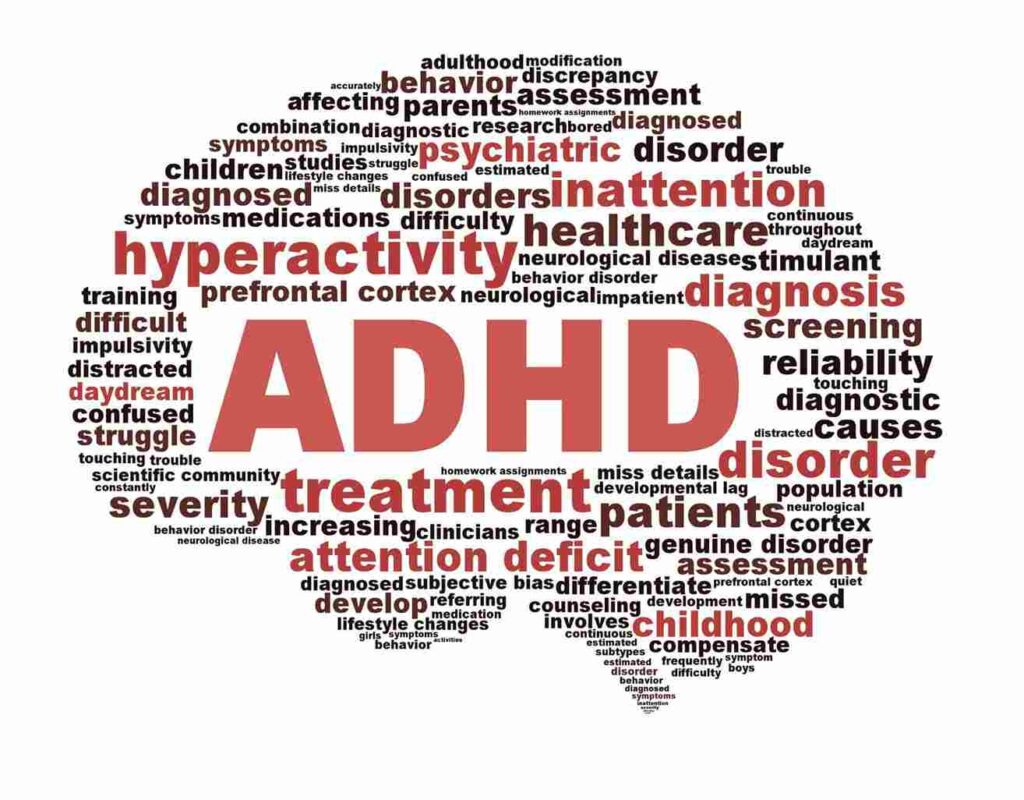Mirtazapine is a medication that has been used to treat depression and anxiety for many years. Recently, there has been some interest in using mirtazapine to treat ADHD. Mirtazapine works by blocking certain receptors in the brain, which can help improve symptoms of ADHD. In this blog post, we will discuss the evidence that supports the use of mirtazapine for ADHD and how it may be a potential new treatment option for this condition!
Contents
Defining ADHD
 ADHD is a condition that is characterized by problems with focus, hyperactivity, and impulsiveness. These symptoms can cause difficulties in school, work, and social situations. Although it is most often diagnosed in children, ADHD can also occur in adults.
ADHD is a condition that is characterized by problems with focus, hyperactivity, and impulsiveness. These symptoms can cause difficulties in school, work, and social situations. Although it is most often diagnosed in children, ADHD can also occur in adults.
Some of the common symptoms of ADHD include:
- Inability to pay attention
- Easily distracted
- Daydreaming
- Forgetfulness
- Disorganization
- Fidgeting or squirming
- Excessive talking
- Interrupting others
These signs and symptoms reflect the importance of treatment for this condition. This condition is often treated with medication, therapy, or a combination of both. Stimulant medications are the most commonly prescribed treatment for ADHD.
However, they are not suitable for everyone. Some people may have side effects from stimulants or find that they are not effective. And, then there are some other options that may be considered.
Mirtazapine For ADHD
Mirtazapine is actually a very old drug. It was first synthesized at Organon in 1989. It was approved for use in the Netherlands in 1993 under the brand name Remeron. At first, it is used for Major Depressive Disorder and other psychiatric disorders. It was not until 2006 that the FDA approved it for use in children and adolescents with MDD.
Now, mirtazapine is being studied as a potential treatment for ADHD. A recent study found that mirtazapine may be effective in treating symptoms of ADHD in children and adolescents. The study found that mirtazapine was associated with a decrease in hyperactivity, impulsivity, and inattention.
Mirtazapine is an interesting drug because it has both antidepressant and anti-anxiety properties. It is also relatively well tolerated. It is believed that this work through effective communication between the hippocampus and prefrontal cortex.
This is a potential new treatment option for ADHD that warrants further study. If you or someone you know has ADHD, talk to your doctor about mirtazapine and whether it may be right for you.
Who Should Avoid Mirtazapine For ADHD?
When taking any medication, it’s important to be aware of the potential side effects. These include:
- If you are taking tryptophan (sometimes called L-tryptophan), you should strictly avoid mirtazapine as it can cause serious side effects.
- If you have uncontrolled epilepsy since it can lower the seizure threshold and make seizures more likely.
- Taking monoamine oxidase inhibitors (MAOIs)
- People with a history of bipolar disorder or mania
- History of seizure disorders
- Pregnant or nursing women
- Mirtazapine should not be used in children under the age of 18.
If you have any of the above conditions, talk to your doctor before starting mirtazapine for ADHD. They may be able to prescribe a different medication that is safer for you. Moreover, researchers have found that mirtazapine may not be as effective in people with comorbid conditions such as anxiety or depression.
Therefore, if you have any other mental health conditions, be sure to tell your doctor before starting mirtazapine. Overall, mirtazapine is a potential new treatment option for ADHD that is generally well-tolerated.
Dosage Information
When you start a new medication, it is important to get the dosage right. Mirtazapine is no exception.
- The starting dose for treating ADHD with mirtazapine is 15 mg per day.
- This dose may be increased by your doctor, depending on how well it works for you.
- The maximum recommended dose is 45 mg per day.
- If you miss a dose of mirtazapine, take it as soon as possible.
- If it is almost time for your next dose, skip the missed dose and go back to your regular dosing schedule.
- Do not take two doses at once.
- The medication comes in tablet form.
- And is usually taken once a day, with or without food.
- If you have trouble swallowing pills, you can dissolve the tablet in a small amount of water.
- Mirtazapine should be taken at the same time each day to maintain an even level
So, these are some basic things that you should know about mirtazapine before starting treatment for ADHD. If you or your child has been diagnosed with ADHD, talk to your doctor about whether mirtazapine may be right for you.
As always, make sure to follow your doctor’s instructions when taking any medication. Do not increase or decrease your dose without talking to your doctor first. And, be sure to report any side effects to your doctor right away.
Benefits of Mirtazapine For ADHD
 There are several potential benefits of using mirtazapine for treating ADHD.
There are several potential benefits of using mirtazapine for treating ADHD.
One benefit is that it can help improve sleep patterns in people with ADHD. It can also help improve appetite and weight in people who have difficulty eating or are underweight.
Additionally, mirtazapine may help improve focus and concentration in people with ADHD. In fact, it is believed that mirtazapine may work in a similar way to stimulant medications, by increasing levels of norepinephrine and dopamine in the brain.
Another potential benefit of mirtazapine is that it can be taken as a once-daily dose at bedtime. This may be helpful for people who have difficulty taking medication multiple times per day or who experience side effects from taking stimulant medications.
Finally, it is generally well-tolerated and has a low potential for abuse or dependence. Though more research is needed to confirm the efficacy of mirtazapine for treating ADHD. It may be a promising new treatment option for people with this condition.
If you or someone you know has ADHD and is considering trying mirtazapine, be sure to speak with a doctor or mental health professional first. They can help you weigh the potential risks and benefits of this medication and make sure it is safe for you to take.
Risks With Mirtazapine
There are some common side effects of taking mirtazapine for ADHD, including:
- Anxiety
- Dizziness
- Headache
- Nausea
- Sleepiness
Some of the more serious potential side effects of taking mirtazapine for ADHD include:
- Allergic reaction (including rash, hives, and difficulty breathing)
- High blood pressure
- Increased heart rate
- Seizures
These are not all of the potential side effects associated with taking mirtazapine for ADHD. It is important that you speak with your doctor about all of the potential risks and benefits of taking this medication.
Moreover, you should understand that taking mirtazapine for ADHD may not be right for everyone. Some people may experience more side effects than others. If you are considering taking mirtazapine for ADHD, it is important that you speak with your doctor to make sure that this medication is right for you.
Things To Avoid While Taking Mirtazapine For ADHD
When you are considering taking mirtazapine for ADHD, there are some things you should avoid doing. These include:
- Taking mirtazapine with other medications for ADHD. This can result in dangerous side effects and may not be effective in treating your condition.
- Missing doses of mirtazapine. It is important to take this medication as prescribed in order to achieve the desired results.
- Stopping mirtazapine suddenly. This can cause withdrawal symptoms and make your ADHD worse.
- Avoiding alcohol and recreational drugs while taking mirtazapine is also advised.
These are very basic but important things to keep in mind when starting mirtazapine for ADHD. Be sure to talk to your doctor about any concerns or questions you may have. With their help, you can make this medication work for you.
However, some things are beyond our control. If you find that mirtazapine is not working for you, do not give up hope. There are many other options out there and one of them may be the perfect fit for you. Talk to your doctor about other potential treatments and never give up on finding the help you need.
Are There Any Alternatives?
Though mirtazapine for ADHD is believed to very effective medication, it is not for everyone. As everyone is different so their conditions are. Therefore, here are some of the alternatives:
Psychostimulants
These are the most commonly prescribed medications for ADHD. Psychostimulants increase levels of dopamine and norepinephrine in the brain, which can improve focus and concentration. Some of the examples include:
Non-stimulants
Non-stimulants are also effective in treating ADHD. These medications increase levels of norepinephrine in the brain, which can improve focus and concentration. Some of the examples include:
- Atomoxetine (Strattera)
- Desipramine (Norpramin)
- Imipramine (Tofranil)
- Nortriptyline (Pamelor)
Mirtazapine may be a potential new non-stimulant option for treating ADHD.
Therapy
This is often the first step in treating ADHD. It can help you and your family understand the disorder and how to deal with it. This type of treatment helps your child learn new skills, such as how to follow directions, control impulses, and finish tasks. Moreover, some other types of therapies might include:
- Cognitive-behavioral therapy
- Family therapy
- Social skills training
If you’re not sure what type of therapy is right for your child, talk to a mental health professional. Also, it is important to understand that only a professional can guide you on the right way to recovery.
Self-Help Strategies
 Although you are not able to take medication for your ADHD, there are many self-help strategies that can be helpful in managing the symptoms. Some of these include:
Although you are not able to take medication for your ADHD, there are many self-help strategies that can be helpful in managing the symptoms. Some of these include:
- Staying organized with lists and planners
- Breaking down tasks into smaller, more manageable chunks
- Setting regular reminders on your phone or computer
- Exercising regularly to help improve focus and concentration
- Eating a healthy diet and avoiding sugary snacks
- Getting enough sleep each night to help improve energy levels
So, it is also important to understand that ADHD is a real condition that affects millions of people. With proper treatment, it is possible to manage the symptoms and lead a successful life. If you are struggling to cope with your ADHD, please reach out to a mental health professional for help.
Therefore, these are some alternatives that can be helpful. If you or someone you know is struggling with this please don’t hesitate to reach out for help from a professional.
Conclusion
To conclude, mirtazapine for ADHD is a potential new treatment option that warrants further exploration. Mirtazapine shows promise as a safe and effective alternative to traditional ADHD medications. If you or your child are struggling with ADHD, speak to your doctor about whether mirtazapine may be right for you.
For more information, please contact MantraCare. ADHD is a neurodevelopmental disorder characterized by difficulty in paying attention, hyperactivity, and impulsivity. If you have any queries regarding Online ADHD Counseling experienced therapists at MantraCare can help: Book a trial ADHD therapy session


